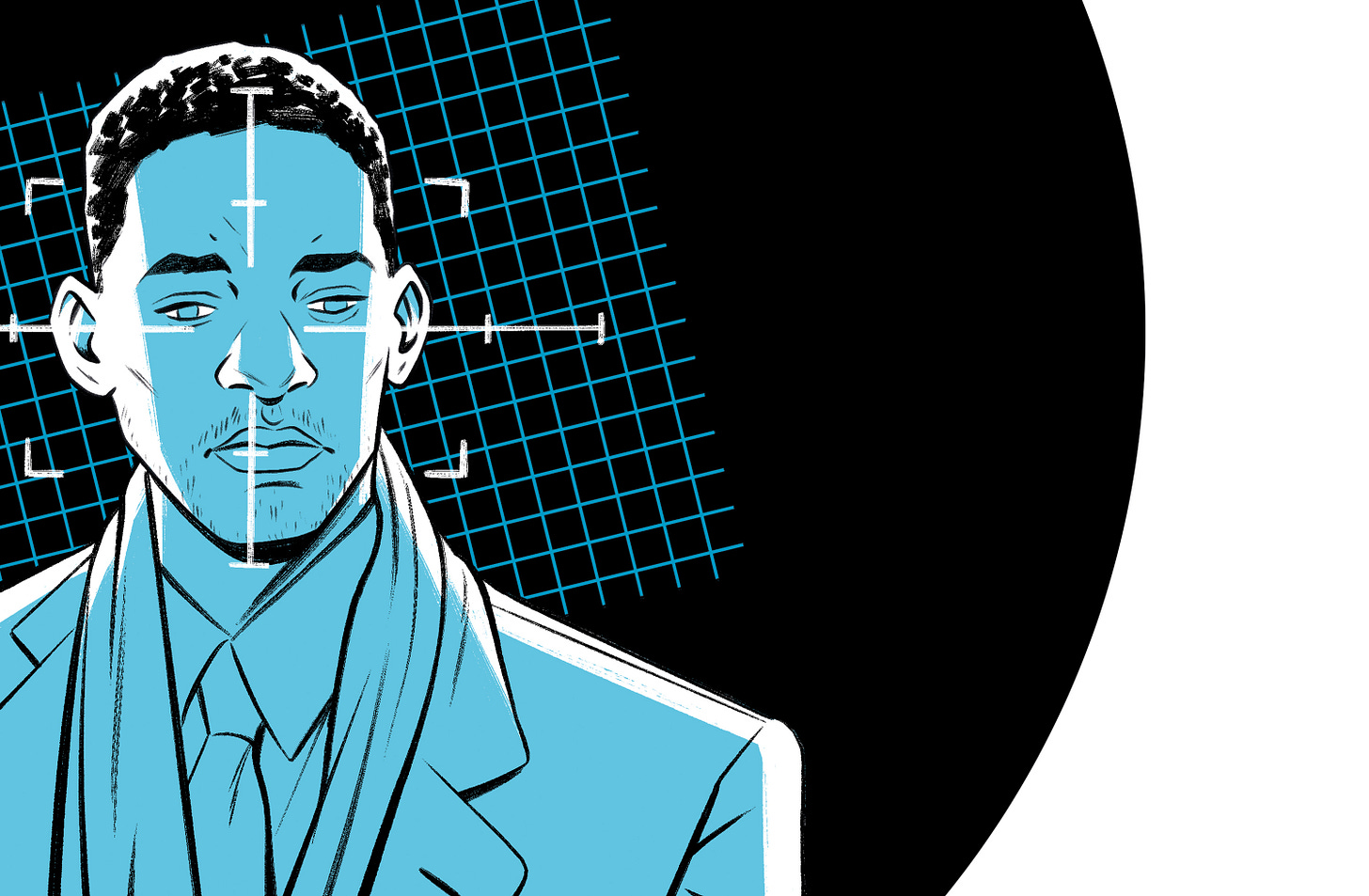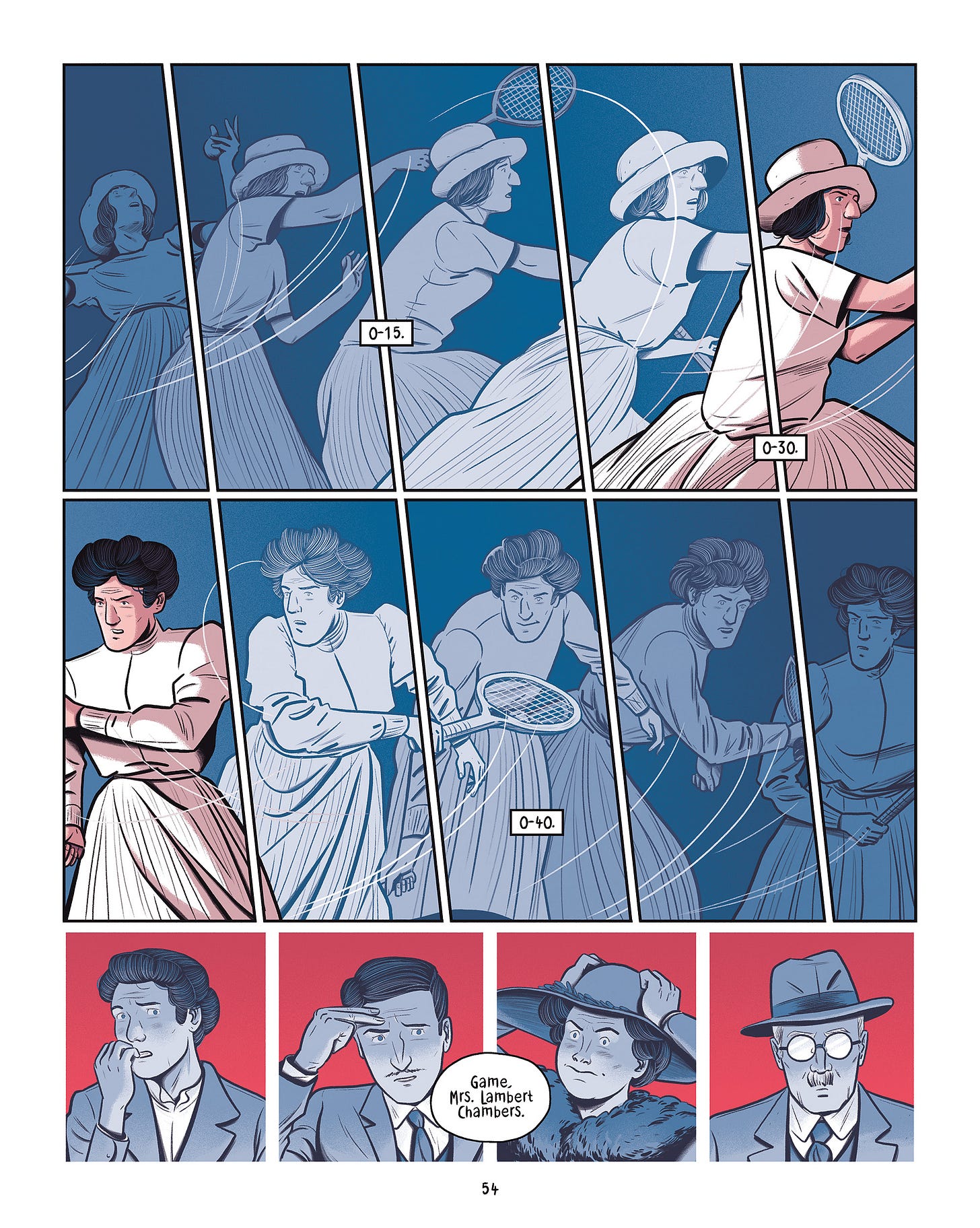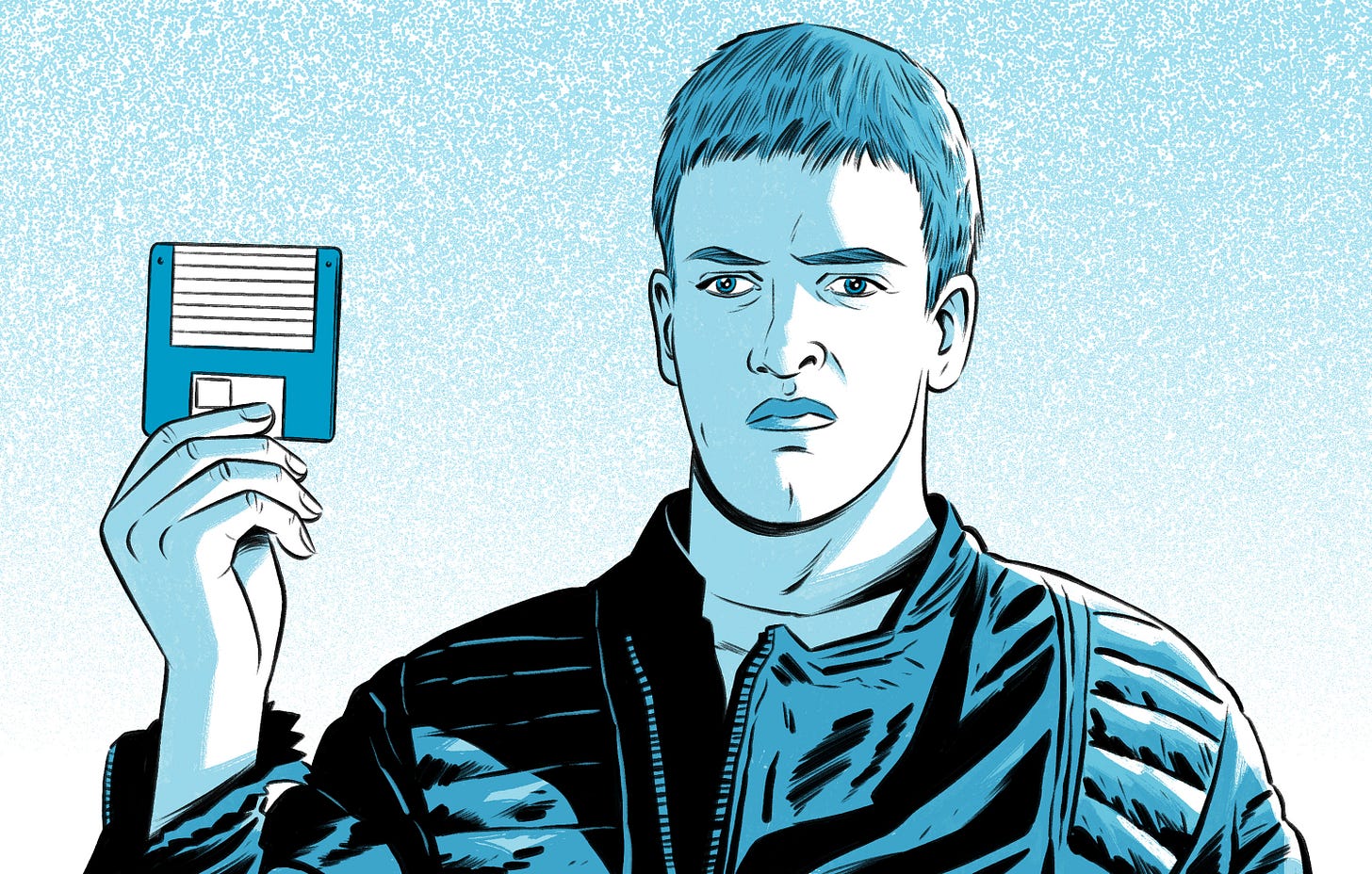Interview with Tom Humberstone
Don't chase a style; the style will find you.
Tom Humberstone’s comics balance being playful and poetic, informative and full of surprise. Best known for his graphic novel Suzanne: The Jazz Age Goddess of Tennis and his co-editing of the poetry comics anthology Over the Line: An Introduction to Poetry Comics, Humberstone brings curiosity to everything he draws. Whether he’s exploring 90s cyber-thrillers or tennis, his shows the power of comics to layer story, meaning, and poetics. In our conversation, Tom reflects why bad comics are essential to getting better and how voice and style are often less about conscious invention and more about learning from your own artistic limitations. He also gives us a glimpse of what he’s bringing to the Glasgow Zine Fest this July 5th & 6th, which promises to be an exciting event. We’re excited to see what Tom has in store next—and to share this conversation with you.
Describe your comics journey—how did you get into making comics?
I'd always been a big comic fan and grew up reading them thanks to my dad's interest in the medium. But I don't think I ever thought it could be a viable vocation for me. I first started making comics at art college when I was studying animation. I would get to the end of an intense drawing week and find I'd only have a second or two to show for it, so drawing comics became a fun outlet for quick ideas. In comparison to animation it was instantaneous communication.
When I graduated, I spent a few years in the film industry and considered comics a fun hobby. But I decided to print a collection of what I had and attended a small press comics event. I kept doing events and making self-published work until at some point in my mid-20s, I started to think of it as more than a hobby and take it more seriously. I founded, edited and published an anthology of UK comics creators called Solipsistic Pop which was an attempt to do something like Raw or McSweeneys for the UK comics scene. Around that time I was making nonfiction comics that got the attention of the New Statesman and they offered me a weekly gig making political comics for them. It was probably around this time I started working with Matt Bors, Eleri Harris and the Nib. By the time I turned 30, I'd gone full time freelance as an illustrator and comic artist.
How did you develop your voice?
I'm still not entirely sure I've found my voice or style. Or if I have, it's happened by accident. Whenever students or aspiring comics creators ask me how to develop a style I always say: don't chase a style; the style will find you. Someone's "style" is ultimately a collection of their failings or shortcomings as an artist.
I think my voice might be different depending on what someone is reading of mine. If they're reading some of my political nonfiction, that will most likely read differently to my fiction, or my poetry comic collaborations with Chrissy Williams, or my zines about pop culture. I think they all have something recognisably mine: an angry, disappointed idealism, a faintly sarcastic tone, an earnest belief in humanity... But I'm not entirely sure if I developed any of this consciously. I think I got better at communicating my thoughts and feelings through comics, and more confident in my point of view, but I suspect that happened through the laborious process of making lots of comics. Lots of bad comics. Sometimes you can't learn how to do something well until you've done it badly. I'm 43 now and I think I'm only just starting to get okay at comics! I'm fine with that. I've always been a slow learner and I'm enjoying the process of incrementally improving.
In terms of influences, I'm always looking around at my peers and the legends of the art-form for inspiration. Outside of comics too. Based on my age, I was starting to make comics when Clowes, Ware, Doucet, Tomine, Sacco, the Hernandez brothers and other Fantagraphics and D&Q artists were the biggest names in indie comics. I'd be lying if I said they didn't have an influence on my aesthetic tastes in comics. More recently, I find my friends inspire/influence me, alongside artists like Eleanor Davis, Sam Harkham, Emily Carroll, Jillian Tamaki, Liam Cobb, the old masters like Alex Toth, directors like Jane Schoenbrun, and writers like Mariana Enriquez.
What are some of the joys and challenges of making nonfiction comics? Of poetry comics?
Ooof. Where to begin? I might limit my answer to one thing otherwise this answer could go on for days!
I think a key downside of nonfiction comics is a strength for poetry comics: economy of line. With comics, you really need to know exactly what you're trying to say and somehow condense it into as few panels, as few words as possible. That can be tricky with nonfiction because you want to credit sources, quote people in context and give the reader as much information as you can so you're not easily accused of crafting a polemic. You need to ensure the text and images are working together and not repeating information, that the images are doing something the words can't and vice versa. You're often working to a very specific page or panel order for a publication and so compressing a topic down into, say, eight pages means you need to understand the subject backwards and forwards. You can't reduce until you know what the most and least important things are.
In poetry comics, that sort of compression is still taking place but it's about a subject you already know well—your feelings and your response to the words of the poem. It's more instinctual and fun in that sense. Less of a puzzle.
Are you working on something now?
I'm currently working on a zine about 90s cyberthrillers and what they can teach us about our current Tech Broligarch Dystopia. That should be printed and ready to take to the Glasgow Zine Fair (July 5th and 6th). I'm also working on a new poem comic with Chrissy Williams that we're hoping to have finished and printed in time for Thought Bubble in November. In between all this I'm working on my next long-form graphic novel.
Tom Humberstone is an award-winning comic artist, illustrator and writer based in Edinburgh. He is the author of Suzanne: The Jazz Age Goddess of Tennis and his comics have appeared in the Ignatz award-winning The Nib, the New Statesman, Vox, Buzzfeed + more. He is the editor and publisher of the critically acclaimed UK comics anthology Solipsistic Pop and co-editor of Over The Line: An Introduction to Poetry Comics. He writes about horror and pop culture in his newsletter, Grave Offerings.
Check out Tom’s website at https://tomhumberstone.com. Follow him on Instagram or Bluesky. Definitely subscribe to his thoughtful and interesting newsletter.









